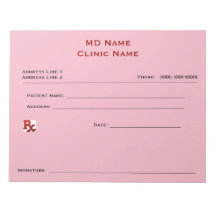Physicians report increasing stress related to pressures to improve quality of care, while significantly reducing costs, factors exacerbated by the recent pandemic. In San Jose, Calif., 450 doctors in the Santa Clara County health system recently agreed on a contract over untenable working conditions. The contract was finally completed just days before the physicians were due to go on strike, which would have jeopardized health care services in that region. The physicians cited “dismissiveness” by leadership as a primary reason for their actions. These professionals did not feel respected. A follow-up survey of those physicians revealed that two-thirds of them did not plan on staying with the organization. Three out of five of those planning to leave cited not being respected by management. This is taking place at a time when the average pay for doctors declined by 24% in 2022. According to Gallup, compensation has become the most important motivator for job seekers, and a primary factor in retaining professionals. Make no mistake, compensation, as a factor in all of this, is complicated. In this article, we will address eight principles involved in respectful professional compensation, applied directly to medical professionals.
Eight principles to guide medical compensation.
- Compensation should be principle-based, or chaos will reign. Compensation on an individual basis, with no thought to how one person’s comp affects others in the organization, will create issues of fairness, polarization, back-biting, and a culture of resentment. People are not quiet about their compensation, despite policies or expectations to the contrary.
- Compensation should make professionals feel well treated. Not everyone will be compensated the same. Variables affect decisions, including role, experience, availability of talent, individual needs of candidates, and the degree of alignment between the professional and the organization. Some will claim that this is unfair. But everyone’s definition of “fair” is different. Instead, establish clear, transparent criteria for compensation decisions.
- Compensation should be based on now, not the past or future. Calibrate pay according to today’s needs and circumstances. Competition for talent is becoming more aggressive than ever, while inflation and the cost of living is rising, with people struggling to keep up.
- The “right thing to do” with compensation is seldom clear-cut.Due to the variables involved, it is possible for two professionals in HR to arrive at two different compensation decisions from the same data. Professional experience, training and education, licenses and certifications, and specialty knowledge often make a difference for two similar professionals.
- The organization must decide if it wants to be a compensation market leader, market competitor, or market laggard. All three positions could be legitimate, but you need to decide! That decision will affect the quality and caliber of medical professionals who will populate the business.
- Good practice requires credible compensation surveys to ascertain what others pay similar medical professionals. There are pluses and minuses to this process, including the difficulty in comparing, in many cases, “apples to oranges” in differing organizations in different locations. Surveys often lag the actual market, sometimes by as much as six to nine months, meaning the data is outdated when you get it.
- Take feedback from medical professionals on competitor salaries, but with a grain of salt. This data is quick, anecdotal, and likely inaccurate, but can give a picture of what the competition is doing. Understand the bias of the professional bringing the data to you. (The professional is unlikely to tell you about competitors who are paying less for talent; they’ll only tell you of those who are paying more.)
- Remember, things change rapidly. The organization must stay competitive to retain high-value medical professionals when the market changes. It means recalibrating compensation and updating limiting policies when the market signals that compensation must be increased or decreased. These decisions require courageous leadership
None of this is easy.
It is not easy to define what medical professionals should be paid. How do you compute the value of a physician? Based on surveys that are out of date, and in a market that is going though massive changes? Based on RVUs or patient load? Or maybe academic degree and specialty certifications? Or even the financial value of the patients being served? After all, surgical patients are more financially valuable to an organization’s bottom line than med-surg patients, on average.
Additionally, human factors affect compensation decisions, including the normal desire to have more, and the less positive urges of greed, envy, and the desire to “best” others. In our society, we are told “more is better,” and many are confused about what the words “fair” and “equitable” really mean. From the corporate side, practices like non-compete clauses, manipulation of pay ranges, mandated across-the-board pay cuts, and other practices cause medical professionals to feel devalued, as if they were somehow “owned” by their organization.
So, what do we really know?
My take, after years of dealing with professional compensation, is that we should strive to never allow compensation to be an issue with medical professionals. Physicians are too valuable to make it a source of dissatisfaction. Pay them well and check the market rates often. When professional compensation becomes an issue for physicians, the organization must act. Transparency matters. When people don’t understand how their compensation is calculated, it is easy for them to believe they are being undercompensated compared to others. Compensation is one tangible measure that all professionals, including physicians, employ to gauge their value. If it becomes an issue, engagement will decline, turnover will increase, and business results will suffer. Outstanding leaders cultivate a culture in which people feel valued for the contributions that they make.
 Manual Prescription Pad (Large - Yellow)
Manual Prescription Pad (Large - Yellow)
 Manual Prescription Pad (Large - Pink)
Manual Prescription Pad (Large - Pink)
 Manual Prescription Pads (Bright Orange)
Manual Prescription Pads (Bright Orange)
 Manual Prescription Pads (Light Pink)
Manual Prescription Pads (Light Pink)
 Manual Prescription Pads (Light Yellow)
Manual Prescription Pads (Light Yellow)
 Manual Prescription Pad (Large - Blue)
Manual Prescription Pad (Large - Blue)
My take, after years of dealing with professional compensation, is that we should strive to never allow compensation to be an issue with medical professionals. Physicians are too valuable to make it a source of dissatisfaction. Pay them well and check the market rates often. When professional compensation becomes an issue for physicians, the organization must act. Transparency matters. When people don’t understand how their compensation is calculated, it is easy for them to believe they are being undercompensated compared to others. Compensation is one tangible measure that all professionals, including physicians, employ to gauge their value. If it becomes an issue, engagement will decline, turnover will increase, and business results will suffer. Outstanding leaders cultivate a culture in which people feel valued for the contributions that they make.
15% Off Medical Practice Supplies
VIEW ALL
 Manual Prescription Pad (Large - Yellow)
Manual Prescription Pad (Large - Yellow) Manual Prescription Pad (Large - Pink)
Manual Prescription Pad (Large - Pink) Manual Prescription Pads (Bright Orange)
Manual Prescription Pads (Bright Orange) Manual Prescription Pads (Light Pink)
Manual Prescription Pads (Light Pink) Manual Prescription Pads (Light Yellow)
Manual Prescription Pads (Light Yellow) Manual Prescription Pad (Large - Blue)
Manual Prescription Pad (Large - Blue)__________________________________________________
Appointment Reminder Cards
$44.05
15% Off
$56.30
15% Off
$44.05
15% Off
$44.05
15% Off
$56.30
15% Off













No comments:
Post a Comment